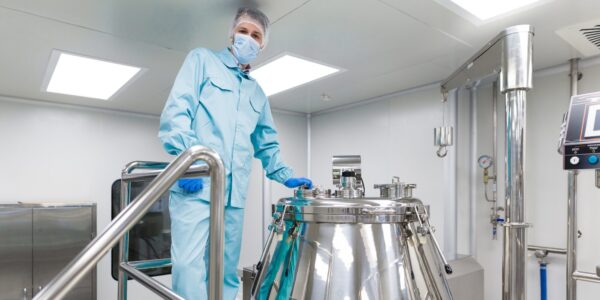Current Good Manufacturing Practices (cGMP)
Definition
Current Good Manufacturing Practices (cGMP) are a set of regulations enforced by regulatory agencies such as the U.S. Food and Drug Administration (FDA) to ensure the proper design, monitoring, and control of manufacturing processes and facilities. cGMP guidelines help ensure that pharmaceutical products are consistently produced and controlled according to quality standards.
 Blog Post
Blog Post
Understanding cGMP in Pharma in 2026: Meaning, Definition, and GMP Comparison
Read moreDetailed Explanation
cGMP regulations are designed to prevent contamination, mix-ups, and errors in drug production, ensuring that medicines are safe and effective for consumers. These regulations cover all aspects of production, including raw material sourcing, facility cleanliness, equipment calibration, personnel training, and documentation practices.
Regulatory Framework
cGMP guidelines are established by various regulatory bodies worldwide, including:
- U.S. FDA: Title 21 CFR Parts 210 and 211 outline cGMP requirements for pharmaceuticals.
- European Medicines Agency (EMA): EU GMP guidelines align with cGMP principles.
- World Health Organization (WHO): WHO GMP guidelines provide global standards for pharmaceutical quality.
Importance of cGMP
Adhering to cGMP regulations is crucial for pharmaceutical manufacturers to ensure:
- Product consistency and quality.
- Compliance with international regulatory requirements.
- Minimization of risks such as contamination and incorrect labeling.
- Consumer safety and efficacy of medications.
Key Components of cGMP
cGMP regulations encompass several key areas:
- Quality Management: Ensuring robust quality control and assurance mechanisms.
- Personnel Training: Employees must be adequately trained in GMP practices.
- Facility and Equipment: Manufacturing sites and equipment must be maintained to prevent contamination.
- Documentation and Record-Keeping: Comprehensive records must be maintained to ensure traceability.
- Validation and Qualification: Processes, systems, and equipment must be validated to function correctly.
Examples of cGMP in Action
Examples of cGMP implementation in pharmaceutical manufacturing include:
- Regular equipment calibration to ensure accurate drug formulation.
- Strict environmental controls to prevent contamination in sterile drug production.
- Comprehensive batch record documentation to trace production history.
- Routine quality control testing to verify product consistency.



